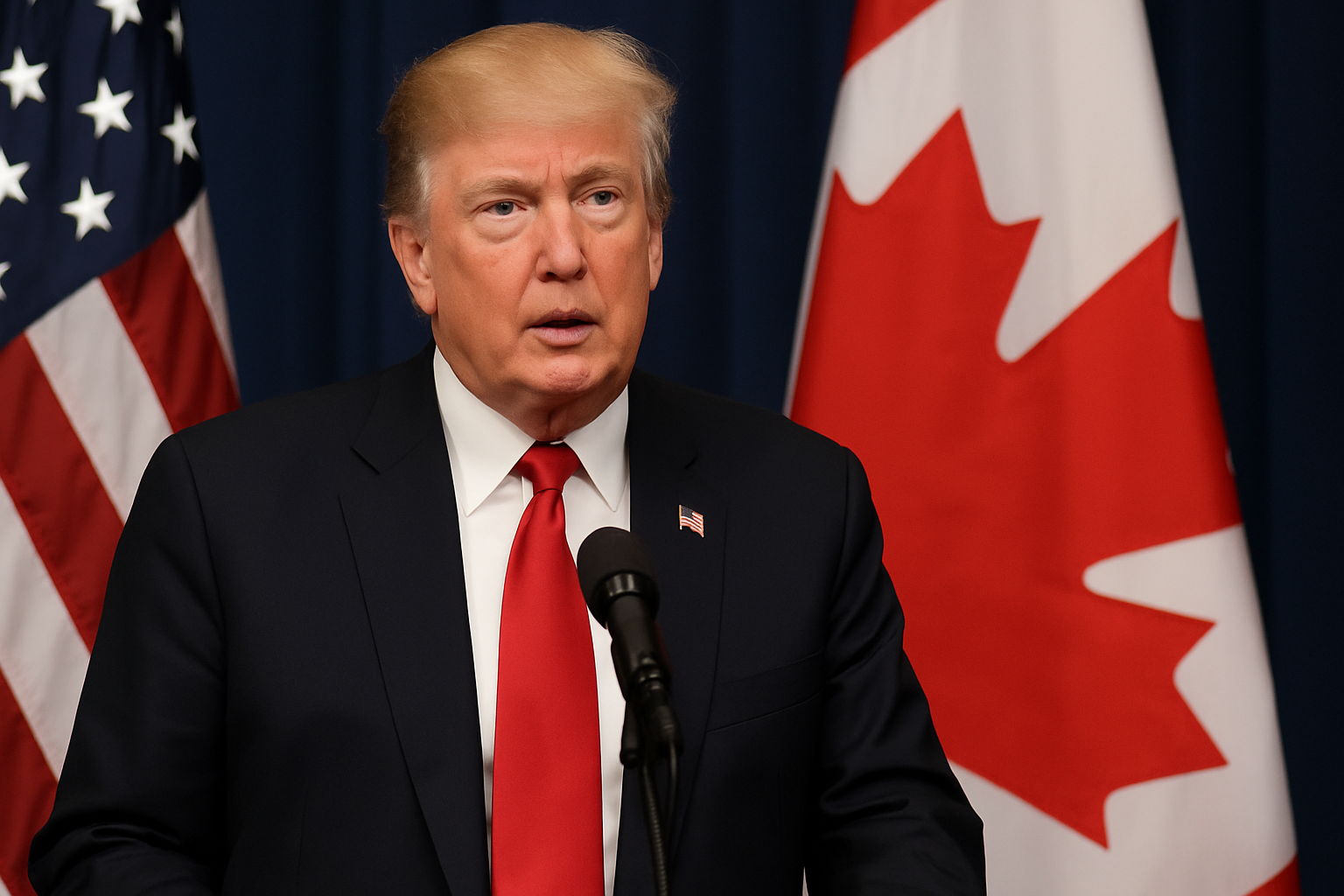President Trump announced a sweeping 35% tariff on Canadian imports, effective from August 1, intensifying U.S.-Canada trade tensions.
Justification and Economic Impacts
Trump cited national security concerns, specifically Canada’s alleged role in fentanyl trafficking and the ongoing trade deficit, which reached $63.3 billion in 2024. The tariff is expected to disrupt supply chains significantly, raising costs across various sectors, especially automotive and steel industries.
U.S. markets immediately reacted negatively, with stock futures showing declines shortly after the announcement.
Canadian Response and Potential Retaliation
Canadian Prime Minister Mark Carney emphasized Canada’s ongoing efforts to combat drug trafficking, indicating openness to negotiation. However, analysts anticipate potential retaliatory measures from Canada, which could escalate the trade conflict and further impact bilateral relations.
Possible Exemptions Under USMCA
The Trump administration noted possible exemptions for goods compliant with the USMCA or those produced by Canadian companies operating within U.S. borders. Details remain under discussion, adding uncertainty to the affected industries.
Broader Global Trade Strategy
The move forms part of a broader U.S. trade policy aimed at addressing deficits and security issues, with additional tariffs potentially reaching 15-20% on other nations, signaling a tougher international trade stance from Washington.
Market participants and policymakers alike are closely watching developments leading up to the August implementation date.
Will Canada retaliate, or will negotiations diffuse tensions? The coming weeks are crucial.







